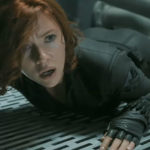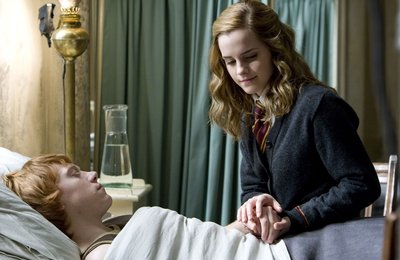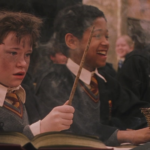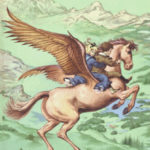Sex In The Story 6: Heroes and Heroines
Black Widow may win over me yet.
Sure, the gal in tight black from The Avengers is still riling some geeks, who don’t see how a lady-fighter with a very small gun could help powerful superheroes. In part 1 of this series, I also wondered if the addition of Black Widow was self-contradictory. By putting a heroine in a male-dominated film to show Girls Can Fight Too, yet also in a black catsuit, doesn’t it defeat the progressive point?
However, at least, based on the most recent trailer, Black Widow may not be that way. Several excerpts show her just as vulnerable as the male characters, if not more so.
 In one clip, damage is going on and she’s lying on some floor or platform, with shock and helplessness clear on her face. Later, Black Widow runs through an exploding hall, with the Hulk behind her (shielding her?). She grimaces and struggles, as debris and sparks rain down on them both.
In one clip, damage is going on and she’s lying on some floor or platform, with shock and helplessness clear on her face. Later, Black Widow runs through an exploding hall, with the Hulk behind her (shielding her?). She grimaces and struggles, as debris and sparks rain down on them both.
Try and tell me this is sexist: suddenly I, as a man, see this character differently. In my perception, she’s not some warrior-princess icon; she could instead be a human hero, well-trained but out of her league. Instead of being only skeptical — ho-hum, another shooting-up heroine who can do anything guys can do, only better — I am sympathetic. And what changed my mind? Seeing her pained expressions. Reflections of humanity.
Surely that, and not artificial attempts to avoid sex caricatures, is how storytellers craft male and female characters who are different, yet equal; balanced, but not boring.
And for Christians, who see men and women created in God’s image to be equal, yet also different in how they reflect His glory or rebel against Him, we can be grateful for those who craft such great characters. Amidst all the belching sitcom dads, raging feminists, over-angsty teen-boy “chosen ones,” or inhuman “warrior princesses,” we find in many stories representations of God-glorifying humanity, male and female, naturally diverse.
How about we wrap up this series — for now — by considering a few?
Sokka
![]() This teen boy, a warrior from the Southern Water Tribe, is introduced in the pilot episode of the animated series Avatar: The Last Airbender, and remains a lead figure throughout the series. When I first viewed the first few Avatar episodes, I was ready to give up Sokka as a hapless cliché: older brother, nagging, silly, and ridiculously male.
This teen boy, a warrior from the Southern Water Tribe, is introduced in the pilot episode of the animated series Avatar: The Last Airbender, and remains a lead figure throughout the series. When I first viewed the first few Avatar episodes, I was ready to give up Sokka as a hapless cliché: older brother, nagging, silly, and ridiculously male.
Then I saw the fourth episode, “The Warriors of Kyoshi.” Sokka meets a group of female warriors and makes fun of them. Naturally he must be taught a lesson, which involves him donning their female-warrior dress and getting beat up by girls. Ha ha! That silly chauvinist Sokka! Those girls showed him! And with that, I was convinced I was right: he’s always going to be only a dumb-young-man laughingstock.
However, at that end of that episode, Sokka had already apologized to the lady warriors’ leader, Suki, and was suddenly mature about it. Really? That never happens …
That could be why I held out hope. And I wasn’t disappointed. For the rest of the series, Sokka, though always very much comic relief, was an absolute hero. He led the group in their quests, gave them perspective, defended his sister, invented machines, and charged with troops into battle.
By the show’s end, he and Suki are an item, with matching talents. And by then, we’ve also seen even more solid male characters, like Uncle Iroh, and Sokka’s father, Hakoda.
This, by the way, is why I hold out hope for next Avatar series. The Legend of Korra will debut on April 14, featuring a new Avatar, Korra, a hotheaded teen girl who enjoys fighting. Ordinarily I’d think, Aw, brother, here we go again (perhaps supported by this). Clearly Avatar’s creators do think themselves “progressive” about female characters. But oddly enough, they don’t think they need to bring male characters down — such as Sokka, Aang, or Uncle Iroh — to make women stronger. That’s encouraging.
Hermione Granger
 Harry Potter fans will instantly recognize the seven-book (and eight-film) series’s most popular female lead. Hermione is a brainy girl gifted with magical abilities, and quickly becomes the friend of Harry Potter, the series’s orphaned hero, and Ron Weasley.
Harry Potter fans will instantly recognize the seven-book (and eight-film) series’s most popular female lead. Hermione is a brainy girl gifted with magical abilities, and quickly becomes the friend of Harry Potter, the series’s orphaned hero, and Ron Weasley.
Shallow readings or viewings might result in seeing Hermione as just another clichéd “I can do anything better than you” girl. At Hogwarts school, she patronizes Harry and Ron, tries to follow school rules to the letter, does library research while they are lazy or even try to cheat the system, and even writes their homework for them.
But as the series progresses, more becomes apparent. Hermione’s skills don’t overrule Harry’s or even Ron’s. They complement them. Moreover, especially as the characters grow into young men and women, author J.K. Rowling makes it very clear that she sees natural differences between the genders — differences that help each person. In the final novel, especially, Hermione’s role is integral to the final quest. Yes, it is Harry who leads the group, trying to destroy the wizarding world’s final enemy. But “we wouldn’t last two days without her!” Ron says in the film version. Hermione’s knowledge and medical skills keeps them safe. At times she is almost — dare I say it! — secretarial.
Finally, Hermione is realistically shown falling in love with another of the series’ main characters, not the titular protagonist! And her natural bent toward strength yet also femininity is not the only one in the Harry Potter world. Ron’s mother, Molly Weasley, is another. Though active in wizarding espionage against the villains, and able to hold her own in a wand duel, Molly is unabashedly domestic, and the mother of seven children.
Rory and Amy Pond
You have to hand it to Doctor Who. The revived British sci-fi series tries so hard to be all edgy and subversive. They really do. Occasionally you’ll get the wink-wink, oh-so-cute reference to homosexual notions. In the last season, Craig, an “everyman” character whom audiences last saw nervously revealing his feelings to a female friend, is shown “married” to her, except not really, because after all, Marriage is Just a Piece of Paper.
But it’s all revealed to be just so much table scraps tossed to anti-family activists, when one considers these main characters. The Ponds, who debuted in the first episode of Doctor Who series 5 (2010), not only contradicted several recent conventions of the franchise, but just can’t help refuting dumb conceptions of male and female characters.
 First, there was this convention: the Doctor’s female companion is supposed to form a killer crush on the time-traveling Time Lord. To be sure, one of the Doctor’s recent companions, Donna, made it clear she would not repeat that nonsense. But then Amy Pond directly came onto the Doctor in a cringe-worthy scene that at first made me sure the series had jumped the flying shark. But not so fast! In the next episode, the Doctor takes action. He will have none of that again, thank you very much. Instead he picks up Rory Williams, Amy’s boyfriend, and whisks them both away to 1580 Venice. By the season’s end, the two are married. They honeymoon, stay in love, and have a child. And in later stories, threats that Amy will resume her crush on the Doctor come to nothing.
First, there was this convention: the Doctor’s female companion is supposed to form a killer crush on the time-traveling Time Lord. To be sure, one of the Doctor’s recent companions, Donna, made it clear she would not repeat that nonsense. But then Amy Pond directly came onto the Doctor in a cringe-worthy scene that at first made me sure the series had jumped the flying shark. But not so fast! In the next episode, the Doctor takes action. He will have none of that again, thank you very much. Instead he picks up Rory Williams, Amy’s boyfriend, and whisks them both away to 1580 Venice. By the season’s end, the two are married. They honeymoon, stay in love, and have a child. And in later stories, threats that Amy will resume her crush on the Doctor come to nothing.
Don’t let Rory’s mostly-joking adoption of Amy’s last name fool you. Much like Sokka, this at-first-silly-seeming man is proved to be an absolute hero. Sure, he dies and comes back to life a lot, and Amy may sometimes save him. But really, who gets honored in the intentionally fairy-tale-like chivalrous subplot of series 5’s climax? Rory, all the way.
As for Amy, her character arc has proven equally interesting. At first she was little more than eye candy. They almost completely Seven-of-Nined her. Then Amy’s clothing grew more modest and her character more evident. She is truly devoted to her husband as her lover, and the Doctor as her childhood hero. Amy is strong and yet feminine. What do you know, a female character can be both — and without slamming men.
Sex Object or nothing?
Still, recently I’ve come to this conclusion: no truly balanced, realistic, strong-yet-flawed character, male or female, will seem that way to all people.
Blind attitudes arise in response to Amy Pond, and River Song from Who, and others.
Just this week, a British toy company announced it was making a new poseable Amy Pond figure. I scrolled down this page, and found the predictable Pond-scumming:
The real Amy Pond looks more vacant than that…
… Followed by comments that I won’t repeat here, not just because they’re obscene but because they’re too stupid for discerning readers.
Amy is a fine character. She is balanced, mature, and grows as a person. Karen Gillan, who plays her, is obviously talented, and like the other cast members, throws herself into the role — makes it real. Why nitpick on her like that?
Oh. Light bulb. Here’s why.
If a female character is not a Sex Object, she just doesn’t show. She’s invisible. “Vacant.”
Thus, in this view, there is no middle option — balanced, realistic and human woman with strengths and failings — between Sex Object and Nothing There.
Men who think this way have emasculated their own brains. And as long as they exist, I doubt only encouragements to fight chauvinism or feminism in stories will help much.
Still, that’s no reason not to encourage stories with characters like these.
What are your favorite male or female characters in speculative stories? How do their strengths reflect our Creator, and their weaknesses our humanity?









































Another great piece Stephen. I think that what you said about the characters being “well-rounded” was the key to the success of the characters.
By the by, I think there are commonalities between Rory and Sokka, in that they both can be comic relief and dopey at times, but if the situation calls for it, they have “hidden reserves” if you will, and they will unleash them on you.
I wanted to note that part of the success of Sokka and Hermione, in my opinion, is how they stuck to what they were good at, and didn’t outshine the “hero”, but weren’t idiots either, as on so many shows. Sokka was the leader, essentially, even though he was the weakest fighter. Hermione was a perfectionist, and overall a far more talented wizard than the others, but in the area that mattered for the plot, fighting and duels, Harry and Ron were better. This didn’t feel convoluted, but it felt “natural”, and that’s why the characters worked.
On Korra, I don’t think, to be fair, that it is necessarily the whole “girls kick butt” thing, as much as that the writers want to contrast her with Aang, and perhaps are going too far in making her the opposite of Aang in every way. She’s essentially a physical god, the planet in human skin, so it makes sense for her to be the most “badass” of everyone.
The problem for me is that her recklessness, arrogance, and love for violence really turn me off. And that’s my attitude towards ANYONE, male or female, who enjoys violence or fighting. Don’t get me started on the stupidity of those “ultimate fighter” dopes. It sickens me. For his perhaps extreme pacifism being annoying, Aang was still better morally than Korra’s love for fighting. The most disturbing part for me is that the writers described her as the type to “pick fights” with people. Okay, other than the fact that she can’t master airbending and the avatar state due to her overly aggressive nature, on all other fronts, she’s older, and has been practicing longer than Aang was when the original series started. So she’s BETTER THAN HE WAS in what she can do at a similar point in her teenage years. So she goes and picks fights? Really? What does that mean? It sounds like she’s a bully who enjoys picking fights with people who will almost always be weaker than her, and beating them up. Nice “hero”. I could be wrong. I hope I’m wrong or that they don’t make her how they described in early statements. But if they do. I doubt I’ll be a fan.
Okay, my time on my soapbox is done. 😉
There’s certainly a danger of them doing that, but I think they needed to go with a fresh personality and an entirely different set of challenges. As Stephen observed, one of the great things about the original series was the way we saw the characters grow and mature along the way. Aang had to get beyond his carefree naivete’ and learn how and when to fight, for the sake of his friends and his world. Korra’s task, presumably, will be to overcome her reflexive urge to fight and instead find other, better ways to solve her problems. Aang had to find his inner warrior, Korra will need to tame hers.
They’re both worthy goals. One of the underlying themes in this fictional universe seems to be the challenge of finding a point of balance and stability despite all the forces, internal and external, that tug us in different and often opposite directions. Everybody, and perhaps teenagers especially, can identify with that.
By the by, those who criticize her for her “little gun” are dumb, in my opinion. Granted, 9mm rounds can’t get past most body armor and all, but it a simple handgun does have it’s uses. A real-life weapon instead of futuristic rockets, the Hulk, a magic Hammer, or a bow and arrow set is refreshing to me. Though I’d rather see an M-16 or M4 assault weapon, but that doesn’t look as “sexy” to people as BW in a form-fitting outfit with a small gun. I don’t agree, but Hollywood thinks that, so the handgun it is.
For example: http://www.schlockmercenary.com/2011-06-21 A little cringe-inducing, but it makes the point.
I was watching “The Girl Who Waited” last night–and Rory’s line “I don’t care that you got old. I care that we didn’t get old together–” wow, that’s just so amazing. And what he does in Wedding of River Song, ignoring the eyepatch so Amy can get to safety (when he doesn’t even remember that they’re married)–I want a guy like that. A guy where you could stick his picture in the dictionary next to faithful.
Perrin Aybara, from The Wheel of Time. He’s the only one of the three ta’veren responsible enough to form a committed relationship and get married. He also grimly accepts his duty, even though he struggles with wanting live a peaceful life. Rand does the same, of course, but Perrin is much less angsty than Rand, less bitter at the universe.
Actually, Faile is one of the best female characters in WoT. Her strengths are parallel to Perrin’s weaknesses, and she is the only one who can help Perrin fully embrace his destiny.
I found the BW really dumb at first – especially in the shots where they’re all standing in a circle, and then she chambers another round into her little gun. She just seemed so ridiculously out of place.
Then I saw the most recent trailer, and it starts to come out that she thinks so too — “This was nothing we were ever trained for…” She’s out of her league and she knows it, but she’s not going to back down, even when Tony Stark brings the monster ship thing down at her, and she’s armed with a pea shooter. That look of horror in her eyes at that moment says it all.
I’m actually getting excited to see what Joss did with her….. I’m just really hoping she doesn’t come between Tony and Pepper. … or any of the other girl friends 😀
Joanna, that was exactly my thought. So long as a shooting-up heroine is actually shown as human, realistic, with flaws and fears just like anyone else, I can do more than put up with her. I’ll actually root for her, even amidst the unrealistic parts. Hey, after all, I put up with Tony Stark and his “unrealistic” abilities and super-suit.
Maybe that’s also what made River Tam, from Firefly and the film Serenity, work a little better than most action-hero women. While her abilities were extraordinary, almost absurd — even given the sci-fi/psychic backstory — it was her vulnerability and confusion that made viewers sympathize with her. You don’t want anything to happen to River, especially when she’s so powerful, yet so vulnerable to the simplest things.
Yeah, that’s definately why I think River Tam works. She’s an amazing fighting machine, but the things that were done to bring her to that point–they make it very clear that this left her broken and lost, and she would have been happy to stay as she was.
It’s not quite as visable with another River–River Song, on Doctor Who, but she went through the same weapon-building training to make her who she is. And it may appear she came out of it fine, but little hints suggest she’s still dealing with it. Or trying not to.
I love ALL these characters. 😀 Okay, maybe not Amy so much. But Rory is amazing, as are all the others. I think I dislike Amy mostly because of her behavior and personality in earlier episodes. She’s also kind of petty, treats Rory disrespectfully, and because they play up the tension between her love for Rory and her love for the Doctor, it makes her seem inconstant. However, she makes up for all that in “A Good Man Goes to War”. 🙂
Warning! If you have not seen Season 6, don’t read the next paragraph. “Spoilers…”
I once came across a forum of feminist Whovians complaining about what a “weak” character Amy had become in the 6th season. I paraphrase because I don’t remember the exact wording, but they basically thought she had been downgraded to a maternal damsel in distress who gets rescued by the guys. And I thought ,”What?? Her character is WAY stronger now than in the earlier episodes when she was a flighty kissogram!” Personally, though, I would have taken her character a bit farther… She kind of sits back and asks the Doctor to rescue her baby for her. As much as she obviously loves Melody, she barely lifts a finger to help the child, herself. Anyone else find that kind of…weak? I feel like if it had been Donna who had a child stolen, or even Martha or Rose, they would have scoured the galaxy looking for her. Maybe I’m remembering wrong, but doesn’t Amy sort of go home with Rory, and sit around waiting for a phone call? Granted, the Doctor sort of “pushed them away” at that point to search alone, but former Companions would probably have insisted on going with him. *shrug* I just don’t find Amy as strong a companion as the others, in general.
But Rory the Roman is pure awesome. 😀
More spoiler talk!
Well, former companions weren’t married, either. Having recently had a baby, myself, I understood why Amy submitted to being trapped in her hospital room and so on. When you’ve had a baby, you’re physically weak as water and you just can’t do much.
As for letting the Doctor track down the baby, he told Amy that’s what he was doing. She just trusted him to get the job done. And as it turned out, he didn’t have to anyway. Hee hee. (Love that particular montage!)
Just the
“but you and I we *kissynoises*”
“Yes!”
“oh-hoo-hoo” *looks at Rory and flees*
Absolutely hilarious.
That is true, about her being married and the fact that she’d just had a baby. I guess it’s been too long since my son’s birth a year ago, and I’ve forgotten – hahaha. (Although, who wears a blouse and tight, white cargo pants right after giving birth?? 😀 I guess it’s unclear to me how long she’d been there before they came to take Melody away.)
Side note
First, there was this convention: the Doctor’s female companion is supposed to form a killer crush on the time-traveling Time Lord.
—
Is only true of the series post-2005. The majority of the classic series companions are not this way.
Yep, to the point where (from what I’ve seen) it was almost unrealistic the other way. I was referring, though, only to recent conventions since the program’s 2005 revival.
For whatever reason, I don’t remember Black Widow at all. Evidently I need to rewatch Iron Man 2.
It’s a black leotard with built-in armor. It’s no more weird looking than the boys in Spandex. I can’t pinpoint what bothers me about the Black Widow comments in this post, and I’ve read it twice. She looks just like the men, to me. Only shorter. Actually, I’m wondering why her hair isn’t tied back.
Trailers are also the most misleading things on the planet. They put things out of order and include cut material. That still doesn’t tell me if she’s been attacked, developed a case of food poisoning, or is doing a Ron Weasley impression.
I saw a second where someone is clearly covering her, but not one where she’s running. Again, I don’t know what you’re getting at.
She grimaces and struggles, as debris and sparks rain down on them both.
Well, what do you expect of an action movie character? They run around kicking butt.
I think it’s bugging me that this seems to only be a problem with female characters.
I’m not a Pepper fan.
Okay, refraining from further Black Widow comments until I can determine if I haven’t gone crazy on Iron Man 2….
Just in case this is the last article in this series, I want to express my appreciation for approaching this topic in a way that did not automatically make me shut down.
I’m totally sick of getting the whole “Biblical relationship” theme over and over again from Sunday School and from my Campus Christian Fellowship meetings. I would never tell the leaders of these wonderful groups that I don’t like their material or their presentation styles, but I’m sure none of them read this site! I even quit going to Sunday School, and I’ve resolved to stay out of it until they get off the Marriage topic. I think the problem is nothing other than the fact that their is no single young adult demographic, and not everything can reach everyone in the same way.
But here, the discussion engaged me without making me feel awkward and immature. The relation to universal icons was fascinating. And all the speculative fiction references were fun, of course, even though I’ve never seen Doctor Who. 😉
So, all this to say, thank you. It was a good one. 🙂
Indeed, I think this will be this series’s last part, yet I’ll likely revisit it sometime — perhaps when Pixar’s own warrior-princess (?) film, Brave, releases.
I’m curious about a related nonfiction topic …
Do you mind sharing what was frustrating about that? Perhaps with references to the material used about Relationships, Marriage, and other Assorted Mush, which certainly doesn’t reflect poorly on anyone’s good intentions?
I ask because I’ve grown frustrated with much of the human-centered material about men, women, and Mush as well. Only when I got hold of stuff that explored the issue from more of a God-centered perspective, such as (most of) Recovering Biblical Manhood and Womanhood, did things fall into place, in a very God-exalting and grace-centered, and not rules-and-methods, way.
Most recently, the Campus Christian Fellowship had been going over qualities by which to measure your girlfriend or boyfriend, to make sure they’re genuine, sincere, rightly-motivated Christians. It didn’t apply to me directly, because I’ve never had even a fairly informal relationship. The material also seemed to contradict other messages that we have also been getting from speakers, etc. For instance, we’ve had the whole “Sex is good; God made it for marriage,” line, and then we hear young Christian women advised to be skeptical of their boyfriends if their boyfriends can’t honestly say that they would still like them if they suddenly became unattractive overnight. The list of good qualities that Christians are supposed to look for was fairly exacting in some ways, although they admitted that not everyone is perfect.
Sunday School. We had a small “College and Career” class, and during the semester, there were only a handful of us, mainly the community college students like me. About two months ago, the Adult Sunday School announced a special series on marriage, and the leader of the College and Career group thought marriage was such a grand topic that all the college kids should hear about it too, so the classes were combined. I went to about one-and-half of these classes, and was totally disinterested. The class is largely about practical day-to-day things that married couples face. I also felt immature being their. Watching your old peers get engaged and go off on their own is a strange experience, akin to realizing that person helping you at the bank can’t be any older than you. This class magnified this feeling for me, making me feel immature.
When I was in our private Christian Academy as a high/junior high student, I hated getting lectures about propriety, etc. They made me feel guilty for things I had never even experienced, let alone done. I still hate how males are always evil by default in these kinds of lectures. But my point — now I also dislike when the reverse is emphasized too much — that it’s okay to have feelings, to be attracted, etc. That makes me terribly awkward. That emphasis is fairly common at the campus fellowship.
So, it’s probably not the material’s fault. I apparently dislike everything! 😉
Poor Baines. I was exactly in your shoes for the longest time. I did the I Kissed Dating Goodbye generation hardcore and wound up marrying a friend I knew over the internet. (How’s THAT for weird?)
Really, I only had breakthroughs in my life when I started praying every day for God to prepare me for marriage. All the classes and books just confused and distanced me.
A lot of that dislike, for me, depended on my life position at the time. None of that stuff made any sense in life context for me, because I hadn’t found The One. I was also in college, and frankly, hadn’t gained even partial maturity or financial independence — which one must have, to some extent, before spouse-searching.
The One, by the way, doesn’t arrive only after you quit desiring him/her, or when you get a mystic divine Sign, or when you clean up your act (as if that’s possible anyway!). Any teaching that implies otherwise, even with “proof texts,” is nonsense.
I think I Kissed Dating Goodbye gets a bad rap, but to some extent it’s deserved, only because of the numerous stigmas attached by formula-driven Christians who sought the Cosmic Cube of Perfect Courtship. Josh Harris’s next book, with more Gospel and wisdom, Boy Meets Girl, proved much more helpful in my case.
Oddly enough, I too married a girl I met on the internet — met, specifically, here.
Linatariel became my wife, and I was/am Dr Elwin Ransom, both on that forum.
God, the ultimate Author, likes to be glorified through many different types of romantic subplots among His supporting cast (with Himself as the only true Hero).
Thank you. 🙂
I also think this is one of those areas where the relative lack of women in Hollywood warps things. Take a show like Xena: Warrior Princess. IMDB says that 5 out of 25 or so writers were women. Is it no wonder that its portrait of “strong women” involves women who do exactly what men do, only better?
I’ve recently been really impressed by the TV show In Plain Sight, and the way its female characters feel both human and realistic–even its brash cop lead strikes me as having more in common with certain women I know who work in male occupations than with classic male detectives. If I’m reading the names right, just over half its writers are women: 9 out of 17. They got women right because they *were* women.
This isn’t to say that men can’t write thoughtful, accurate women. But there is a way in which a roomful of men is simply less likely to notice the same details women will.
But I’m still excited about Brave. Even if Pixar mostly employs men, the latest trailer featured an intense argument between two women, a mother and a daughter. More importantly, the mother is shown as powerful not because of any martial skills, but because of her age and moral authority. That bodes well, to me.
Rambler, I agree with you about Brave‘s seeming originality. Despite Cars 2 — which was really just mundane, a “fail” only because Pixar’s standard is so high — I trust Pixar.
In fact, Brave, and the all-Disney film Tangled, would alone seem to necessitate another installment of this series. However, the title itself would also cover the topic of actual sex (verb) in fiction, how much is too much, what “boundaries” there are, motives in including them, reader temptations, and so on. Of course, that’s a widely encompassing topic, so it may be a while before I try to take it on.
(You had to hit one of my pet peeves … sigh …)
I haven’t seen any of the movies beyond #3, but one reason I’ve come to increasingly dislike the books beyond Goblet of Fire and turn to fan-fiction instead is that Rowling’s portrayal of relationships doesn’t ring true with me at all. It’s almost as if there’s a point at which she realized that she had been heavily foreshadowing one set of relationships “by mistake,” changed her mind, and then wrote in her idea of “a happy ending” with little, and clumsy, build-up.
That said, Hermione is my favorite character (partly because she’s the one I’d identify with if Rowling didn’t write in such a close POV), and one of the three case studies I intend to cover when I finally get around to writing my essay “On Falling in Love with Fictional Characters”.
My other favorite female character in a speculative story is, I think, Lucy Pevensie. Who (aside from all the obvious reasons :)) shows us that being “valiant” isn’t about physical combat.
Oh, and Angharad/Harry/Harimad from Robin McKinley’s The Blue Sword.
[…] Second, some critics are apparently opposing simple pictures of human weakness. So is it oppressive to show Black Widow crying? Or suffering? Or in any kind of vulnerability? […]